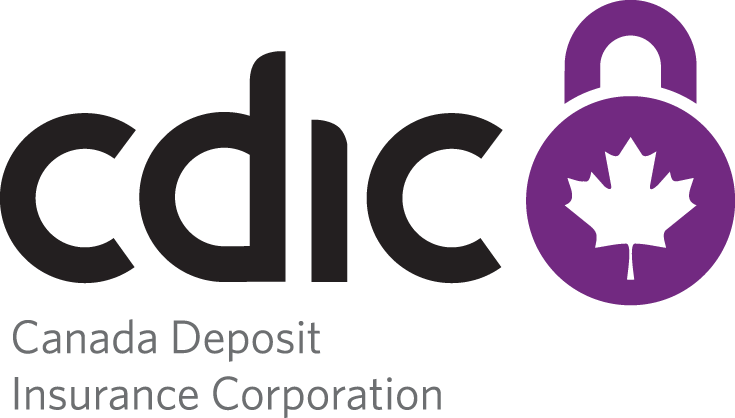For trustees

The Government of Canada has made important changes to the rules governing deposit insurance protection for deposits held “in trust” at CDIC member institutions. The changes took effect April 30, 2022 and introduced new disclosure requirements for Trustees.
If you are a Trustee who holds eligible deposits in trust at a CDIC member institution in your professional capacity, you may be a Professional Trustee. Professional Trustees can choose to benefit from less onerous disclosure requirements. For more information, please visit Professional Trustees.
Not sure if you hold funds in a professional capacity?
Please use the to find out.
Do you hold monies in trust for others at a CDIC member institution?
CDIC Deposit Insurance
CDIC insures eligible deposits held at CDIC member institutions. CDIC insures eligible deposits to a maximum of $100,000 per insurance category, one of which is deposits held in trust.
For more information on eligible deposits and how CDIC protects your deposits, visit “What’s covered”.
Are you a:
- Public Trustee? A public trustee of a province or a similar public official whose duties involve holding moneys in trust for others qualifies as a Professional Trustee.
- Federal, Provincial, or Municipal government department, agency, or actor? A federal, provincial or municipal government, or a department or agency of such a government qualifies as a Professional Trustee.
- Lawyer or Notary? A lawyer or partnership of lawyers, a law corporation, or a notary or partnership of notaries in the province of Quebec, when they act in that capacity as a trustee of moneys for others qualifies as a Professional Trustees.
- Trust Company? A regulated federal or provincial trust company acting in the capacity of a depositor qualifies as a Professional Trustee.
- Payment Service Provider? A payment service provider that is registered as such by the Bank of Canada under the Retail Payment Activities Act qualifies as a Professional Trustee. (Effective on September 8, 2025)
Professional Trustee
The answers provided indicate you may qualify under the CDIC Act as a Professional Trustee.
As of April 30th 2022, Professional Trustees who hold deposits in trust at CDIC member institutions may opt into the Professional Trustee Disclosure Rules.
On September 8, 2025, Payment Service Providers (PSP) who are registered as such by the Bank of Canada, and who do not already qualify as a professional trustee, will be eligible to be professional trustees under the CDIC Act.
For more information on the Professional Trustee Rules and Disclosure Requirements visit For professional trustees and refer to What you need to know – Professional Trustees (PDF, 83 KB)
Are you a Person who holds funds in trust in the course of business?
Person: A Person includes an individual, an entity (such as a partnership, association, or corporation) or personal representative.
In the Course of Business: “In the course of business” includes the activities of a Person in their professional capacity. Where the Person is not an individual, this means all normal business activities.
Trustee
The answers provided indicate you do not qualify as a Professional trustee. CDIC continues to insure eligible deposits held in trust at CDIC member institutions up to $100,000 per beneficiary.
Trustees who hold deposits in trust at CDIC member institutions must meet certain disclosure requirements to ensure they receive appropriate deposit insurance coverage.
For more information on Trustee disclosure rules and the obligations of trustee depositors visit For Trustees and refer to What you need to know – Trustees (PDF, 83 KB).
Are you required by law to hold the deposit in trust?
Required by Law: A person is “required by law” where by, or under, legislation, regulation, or any other legal enactment a Person is required to hold funds in trust for another or a trustee relationship is created where the Person must act as a trustee for another.
Are you subject to the rules of securities commission, stock exchange, or other regulatory or self-regulatory organization that audits compliance with those rules?
Rules: Rules may be found in the form of regulations, bylaws, professional requirements, or any other binding rule that governs the, operation, license, and/or conduct of a person. The rules as set out by the Regulatory or Self-Regulatory Organization do not have to make specific provision for the creation of a trustee relationship, or how and why the money held in trust is deposited or otherwise kept.
Other Regulatory or Self-Regulatory Organization: Regulatory and self-regulatory organizations are those organizations created by, or under, statute with the power to make binding rules or regulations with respect to securities law, or those organizations that have delegated authority to regulate the conduct of their members and/or other securities market participants. Regulatory and self-regulatory organizations must have a mandate to regulate the operation, license and/or conduct of the Person.
Audits Compliance: An “Audit” includes any examination, investigation, or other review of the conduct or affairs of the Person. The audit must be conducted by, on behalf of, the Regulatory or Self-regulatory organization. The audit must, at least in part, concern compliance with the rules of the Regulatory or Self-Regulatory organization to which the Person is subject. The Audit may be conducted at set times or may be conducted at the discretion of the Regulatory or Self-Regulatory organization.
Rules for Trustees:
CDIC calculates deposit insurance coverage based on the information held at our member institutions. As a trustee, there are specific rules you need to follow to ensure the funds you hold in trust for your beneficiaries receive optimal deposit insurance protection. The following questions will help guide you through these rules and what you need to do to meet them.
What are the new rules for trustees?
The new disclosure rules for trustees help ensure the CDIC member institution holding your trust deposits knows about:
- you (the trustee),
- who you are holding the funds for (your beneficiary or beneficiaries)
- the “trust” relationship between you and the persons for whom you are holding the deposit.
If you place, or hold, deposits in trust at a CDIC member institution, you need to ensure the following information is on their records for each deposit you hold:
- That the deposit is held in trust;
- That you are the trustee or co-trustee;
- your legal name and address along with that of each co-trustee;
- The name and address of each beneficiary (even if there is only a single beneficiary); and
- The amount, or percentage, of each beneficiary’s interest in the trust deposit (CDIC insures eligible trust deposits up to $100,000 for each beneficiary identified).
For more information please see What you Need to Know – Trustee (PDF, 83 KB)
Why are these new rules important?
The new rules are important because they affect how CDIC protects deposits held by trustees. If a member institution were to fail, CDIC would use the information on the records of that institution to determine the trustee’s deposit insurance coverage.
The amount of deposit insurance coverage calculated by CDIC will be reimbursed directly to the trustee who is noted as the depositor of record with the failed MI on behalf of their beneficiary(ies). The trustee is responsible for engaging with their beneficiaries on how to deal with the funds.
How do the new rules differ from the old ones?
The new rules that took effect on April 30, 2022, do not substantially change the requirements that most trustees need to meet to ensure the deposits they hold for their beneficiaries remain protected by CDIC. However, there are some key differences you should know about. The following provides a summary of how the new requirements impact trustees who hold deposits in trust for a single beneficiary or multiple beneficiaries:
| Single beneficiary | Multiple beneficiaries |
| Trustees continue to be required to disclose to their member institutions key information about the deposit being held in trust, information about the trustee(s) to the deposit (name & address), and information about the beneficiary of the deposit (name & address). | Trustees continue to be required to disclose to their member institutions key information about the deposit being held in trust, information about the trustee(s) to the deposit (name & address), and information about each beneficiary of the deposit (names & addresses). |
| Trustees are instead able to update their information, or that of their beneficiaries, with their member institution at any time during the year to ensure the required information on the member institution’s records is kept up to date. | Trustees continue to be required to disclose to their member institutions the interest that each beneficiary holds in the deposit, expressed as an amount ($) or as a percentage (%). |
| CDIC member institutions will reach out to trustees annually to remind them to update their information where it is no longer current. | Trustees holding a deposit with multiple beneficiaries continue to receive an annual notifications from their member institution requesting updates to information about the beneficiary of the deposit. |
| Trustees are able to update their information, or that of their beneficiaries, with their member institution at any time during the year to ensure the required information on the member institution’s records is kept up to date. |
As trustees may update their information, or that of their beneficiaries, at any time to ensure the required information is kept up to date, CDIC encourages trustees to make these updates directly with their member institutions as soon as it changes. CDIC uses the latest information disclosed on the records of its member institutions to calculate deposit insurance protection for deposits held in trust.
Trustees who qualify as “Professional Trustees” may choose to benefit from less onerous disclosure requirements for certain deposit accounts they hold for beneficiaries provided they are capable of meeting certain informational and disclosure requirements.
Do the new rules change how the deposit I hold for my beneficiaries are protected?
No. CDIC continues to insure eligible deposits held in trust up to $100,000 per beneficiary, as long as the above noted rules are met by the trustee.
What do I need to do to ensure that I, and my beneficiaries, are protected?
If you’re a trustee, you may wish to consider the following questions to ensure your eligible deposits are protected to applicable limits:
- Do I hold deposits in trust at a CDIC member Institution?
- Have I provided the member institution where I hold trust deposits with my, and my beneficiaries’ information?
- Is the beneficiary information on my records, and on the records of the member institution accurate and current?
- Do I qualify as a Professional Trustee?
To learn more about what is required of trustees, and when, please consult the Trustee Notification Requirements.
How do I stay informed?
We encourage you to check back here regularly for updates about trust deposits.
Still have questions?
CDIC is committed to fostering awareness and understanding of the new framework among the trustee community. We welcome your feedback, including any questions or comments. Please feel free to contact us. You can also follow us on social media for regular updates and information about deposit insurance. We’re here to help!
